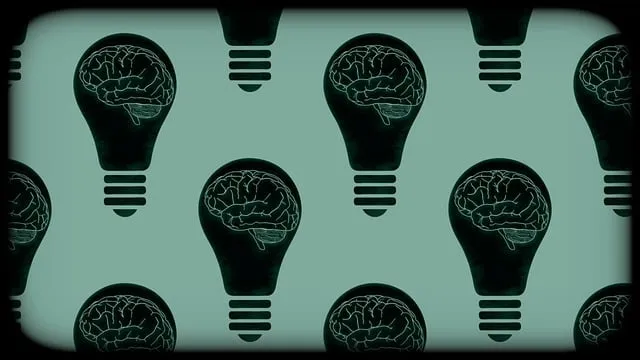Boulder Kaiser Permanente's mental wellness group facilitation offers a holistic, community-oriented approach to mental health support. Trained facilitators create safe spaces for individuals to share experiences, learn coping strategies, and build supportive peer networks. Cultural sensitivity ensures tailored care, while practices like self-care routine development and trauma support empower participants. The center distinguishes itself with evidence-based techniques blending emotional intelligence and self-discovery, fostering long-term resilience and well-being in a patient-centered environment. Facilitators use multi-faceted measurement tools to track progress, customize interventions, and promote recovery through burnout prevention strategies.
“Uncovering the power of collective support in mental wellness is essential, especially as organizations like Boulder Kaiser Permanente pioneer innovative approaches. This article delves into the art of mental wellness group facilitation, exploring techniques that foster healing and growth.
We’ll examine Boulder Kaiser Permanente’s successful model for providing mental health support through group sessions. Learn key strategies to enhance engagement, facilitate meaningful discussions, and measure progress in promoting recovery among participants.”
- Understanding Mental Wellness Group Facilitation
- Boulder Kaiser Permanente's Approach to Mental Health Support
- Key Techniques for Effective Group Sessions
- Measuring Success and Promoting Recovery
Understanding Mental Wellness Group Facilitation

Mental wellness group facilitation is a specialized skill set that empowers individuals to support their peers in navigating challenging mental health journeys. In the context of Boulder Kaiser Permanente mental health services, facilitators play a vital role in fostering a safe and inclusive environment where participants can share experiences, gain insights, and build coping strategies together. This collaborative approach leverages the power of community and peer support, enhancing access to care and promoting positive mental wellness outcomes.
Cultural sensitivity in mental healthcare practice is a cornerstone of effective facilitation. Recognizing the diverse backgrounds and lived experiences of group members ensures that support is tailored to individual needs. Additionally, incorporating practices like self-care routine development for better mental health can empower participants to take proactive steps towards well-being. For those who have experienced trauma, specialized trauma support services within these groups can provide much-needed healing and resilience-building opportunities.
Boulder Kaiser Permanente's Approach to Mental Health Support

Boulder Kaiser Permanente stands out for its holistic approach to mental health support, emphasizing a collaborative and nurturing environment for individuals seeking inner strength development. The organization prioritizes patient-centered care, incorporating various facilitation techniques to enhance self-awareness exercises and emotional regulation skills. Through group sessions led by trained professionals, participants engage in meaningful discussions, learn coping strategies, and build supportive peer networks.
This community-oriented model not only addresses the immediate mental health concerns but also fosters long-term resilience and well-being. By combining evidence-based practices with a focus on emotional intelligence and self-discovery, Boulder Kaiser Permanente offers a transformative experience that empowers individuals to navigate life’s challenges with enhanced coping mechanisms and renewed sense of purpose.
Key Techniques for Effective Group Sessions

Effective group facilitation for mental wellness sessions involves a blend of key techniques that foster open communication and create a supportive environment. One powerful method is inner strength development through sharing circles, where members take turns expressing their experiences and emotions. This not only encourages self-reflection but also builds empathy and connection among participants, creating a sense of belonging at the Boulder Kaiser Permanente mental health center or any other setting.
Additionally, incorporating stress management workshops organization strategies can help structure the sessions. Facilitators can guide exercises such as mindfulness practices, guided meditations, or cognitive-behavioral techniques to equip members with tools for managing stress and improving overall mental wellness. These interactive activities not only enhance engagement but also ensure that each session offers tangible takeaways for better emotional well-being.
Measuring Success and Promoting Recovery

Measuring success and promoting recovery are paramount aspects of effective mental wellness group facilitation. At Boulder Kaiser Permanente mental health services, facilitators employ diverse strategies to assess progress. These include self-reported surveys, peer evaluations, and observational notes, allowing for a holistic understanding of each participant’s well-being. By integrating these metrics, facilitators can identify areas of growth and challenge, tailoring interventions accordingly.
Promoting recovery involves creating a supportive environment that encourages participants to implement coping strategies into their daily lives. Healthcare providers play a crucial role in this process through cultural competency training, enhancing their ability to understand and address the unique needs of diverse groups. Additionally, burnout prevention strategies for healthcare providers are integrated to ensure facilitators remain resilient, thereby fostering sustainable recovery for all group members.
Mental wellness group facilitation plays a pivotal role in supporting individuals through Boulder Kaiser Permanente’s comprehensive mental health services. By employing techniques that foster open communication, empathy, and structured activities, facilitators create safe spaces for participants to navigate challenges collectively. Inspired by Boulder Kaiser Permanente’s commitment to holistic care, these strategies not only enhance individual recovery but also contribute to a vibrant tapestry of community support.






